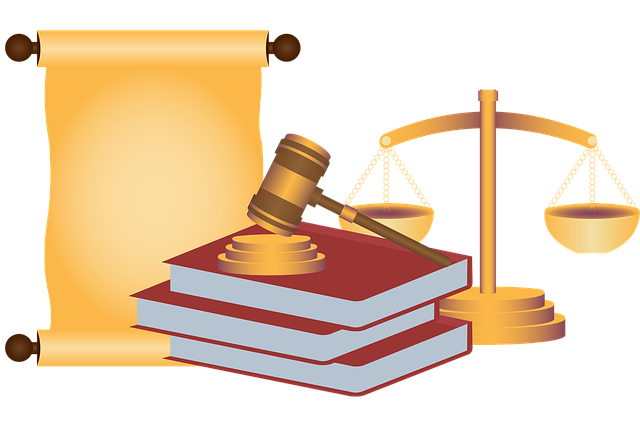Corporate crime investigations involve complex legal battles targeting illegal business activities like fraud and violations. Understanding these processes is key for Class Action Lawsuit (CAL) eligibility requirements, where victims seek compensation for widespread misconduct. CALs aggregate claims from many victims, requiring proof of direct harm. Successful navigation of legal complexities and strategic case preparation can lead to positive resolutions for all parties involved.
In the intricate landscape of corporate governance, crime investigations play a pivotal role in upholding justice and ensuring ethical business practices. This comprehensive guide delves into the intricacies of understanding corporate crime investigations, from unravelling complex schemes to securing justice for affected parties. We explore key evidence strategies in high-profile cases, highlighting the significance of thorough investigation techniques. Additionally, we shed light on class action lawsuits, focusing on the eligibility criteria that empower victims to seek compensation.
- Understanding Corporate Crime Investigations: A Comprehensive Guide
- Uncovering Wrongdoings: Key Evidence in High-Profile Cases
- Class Action Lawsuits: Eligibility Criteria for Victim Compensation
- Navigating Legal Complexities: Strategies for Successful Claims
Understanding Corporate Crime Investigations: A Comprehensive Guide

Corporate Crime Investigations delve into complex and sensitive matters where businesses or their representatives engage in illegal activities. This can range from financial fraud, accounting irregularities, to violating consumer protection laws, among others. A comprehensive guide to understanding these investigations is crucial, especially for those considering a Class Action Lawsuit Eligibility Requirements. Such cases often arise when a company’s actions harm numerous individuals or entities across the country, leading to coordinated legal efforts to seek justice and compensation.
Understanding the process involves recognizing that these inquiries are not merely internal audits but legal battles aimed at holding culpable parties accountable. They require meticulous documentation, evidence collection, and an in-depth analysis of corporate structures and transactions. Moreover, distinguishing between legitimate business practices and criminal activity is paramount, as avoiding indictment hinges on this distinction. In the world of white collar defense, a successful strategy often relies on a thorough understanding of the legal landscape and the nuances of each case, ensuring that justice is served while protecting the rights of all involved parties.
Uncovering Wrongdoings: Key Evidence in High-Profile Cases

Uncovering wrongdoings in corporate crime investigations often requires a meticulous search for key evidence that can make or break high-profile cases. In these high-stakes cases, where significant financial and reputational damage is at stake, every detail matters. Investigators must be adept at sifting through complex financial transactions, digital footprints, and documentation to unearth conclusive proof of wrongdoing. This process involves a combination of advanced data analytics, expert witness testimony, and a deep understanding of white collar defense strategies.
Evidence that can establish Class Action Lawsuit eligibility requirements plays a pivotal role in these investigations. For instance, comprehensive financial records, email communications, and insider trading activities can serve as compelling proof. Successfully presenting this evidence in court often leads to the complete dismissal of all charges, ensuring both corporate accountability and justice for affected parties.
Class Action Lawsuits: Eligibility Criteria for Victim Compensation

In the context of corporate crime investigations, Class Action Lawsuits (CALs) serve as a powerful tool for victims seeking compensation. To be eligible for participation and potential financial redress in a CAL, individuals must meet specific criteria related to their experience or involvement with the respective business entity under investigation. These lawsuits are typically initiated when a company is accused of widespread misconduct, such as securities fraud, environmental damage, or antitrust violations, which adversely affect numerous consumers or stakeholders.
The eligibility requirements often focus on demonstrating direct harm or loss suffered by the plaintiff due to the corporate crime. This may involve providing evidence of financial losses, personal injuries, or other tangible damages incurred. Unlike individual lawsuits, CALs aim to aggregate claims from many victims, ensuring that those who might not have had sufficient resources or standing to sue alone can still be heard and potentially compensated. By pooling their cases, plaintiffs strengthen their collective position, which may also encourage companies to avoid indictment through settlement negotiations in jury trials.
Navigating Legal Complexities: Strategies for Successful Claims

Navigating legal complexities is a critical aspect of successful corporate crime investigations and claims. When considering a class action lawsuit, understanding the eligibility requirements is essential. These cases often involve numerous plaintiffs and intricate legal issues, making it crucial to have a comprehensive strategy from the outset. A well-prepared case can lead to a complete dismissal of all charges against the corporation or even an unprecedented track record of favorable outcomes for both corporate and individual clients.
Legal teams must thoroughly examine the facts, identify relevant laws, and craft persuasive arguments. Experience in handling similar cases is invaluable, as it allows attorneys to anticipate potential challenges and navigate the legal landscape effectively. By combining a deep understanding of the law with a strategic approach, investigators can increase the chances of a positive resolution, ensuring justice for those affected by corporate misconduct.
Corporate crime investigations demand a meticulous approach, from understanding complex legal frameworks to uncovering key evidence. This article has provided an in-depth guide through various aspects, from the initial stages of investigation to navigating legal complexities and compensating victims through class action lawsuits. By recognizing the significance of Class Action Lawsuit Eligibility Requirements, individuals affected by corporate misconduct can collectively pursue justice and ensure accountable practices for future generations.






